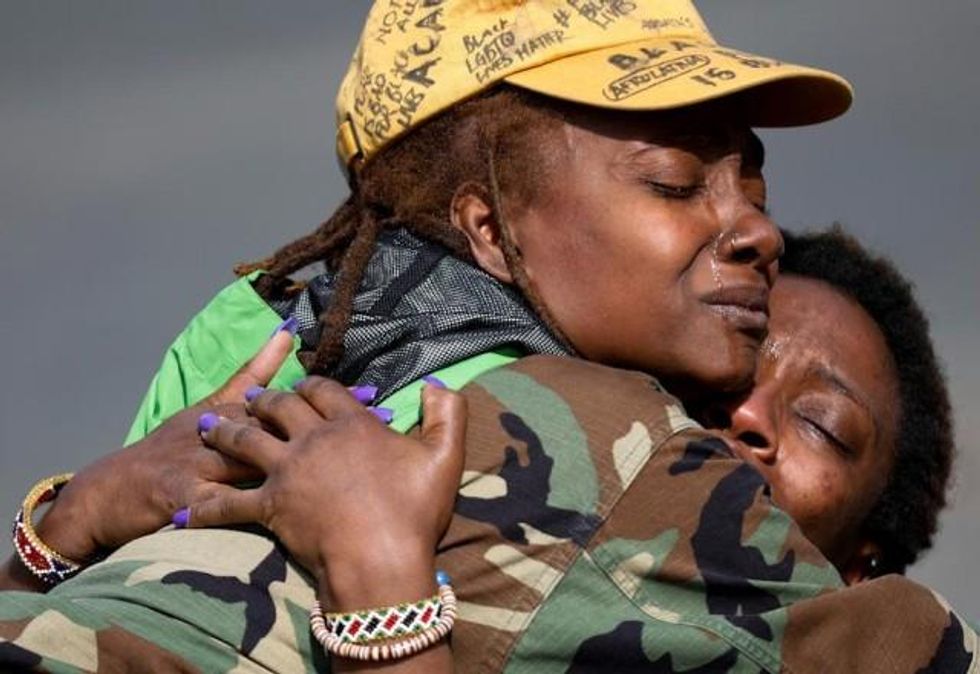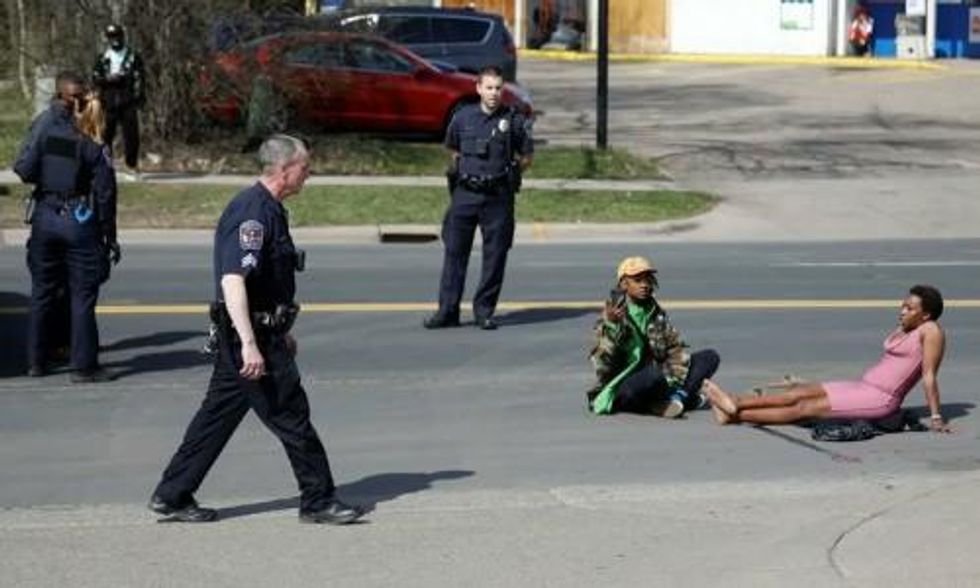Phoenix Robles and Dorcas Monari hug after Robles stopped to protect Monari. Photo: Nick Pfosi/Reuters
Derek Chauvin's been convicted - guilty, guilty, guilty, deeply - but the carnage persists. Since his trial began, police have killed at least 64 more people, totalling over three killings a day; more than half of the dead are black and Latino, among them 16-year-old Ma'Khia Bryant and 13-year-old Adam Toledo. Little wonder, then, that during the past few weeks, as people of color have had to painstakingly confront and re-live their "collective, ancestral trauma," the rates of those suffering mental health distress have soared, while the rates of white people haven't changed. So it was that with Chauvin's trial still underway last week, a lone pained black woman in crisis abruptly sat down in the street in Brooklyn Center, Minn., near where Daunte Wright was shot and killed. A gathering storm of hostile cops soon turned up. So did Phoenix Robles, a fierce 36-year-old activist and photographer with a social work degree who was driving to a George Floyd memorial when she saw the tense scene, felt the protective need to stop, and started filming. "How you doing, sis? You okay?" she called gently to Dorcas Monari, collapsed in the street. Monari barely shook her head no. "Can I sit with you?" asked Robles. A muted nod yes. Robles walked closer, and asked why Monari was sitting there. "For George Floyd," she murmured. Robles turned to the circle of hovering cops. "We're having a mental health crisis, so please do not do anything," she called to them. "I want to talk to her." Then she sat with Monari, excoriating the police for their abiding abuses.
"I recognized she was in a state of distress (and) I knew why, so in that moment I just wanted to focus on her," Robles, who has stepped into volatile situations before, explained later. "When I got out of that car, I knew I was either going to get them away, or one of us was going to die today" - or land unjustifiably in state custody. To protect and provide a safe space for victimized or traumatized women, says Dr. Ajita Robinson, "There's a collective pause we have to be willing to take" - which Robles was doing in all her righteous rage. "How can you require someone who is in pain to be polite when they're simply asking you to stop harming them?" she said. "You don't get to make that request." Robles "met (Monari) as a human being first," without judgment, she said; in contrast, rather than ask what the distraught Monari needed, the cops showed up in force, treated both women as hostile, and were taken aback when the women responded in kind. Robles also aimed her fury at a cluster of "complicit" black bystanders watching and filming, but not joining them. "She is protesting for your black lives," she shouted. "More people should be out on the street with her to protect black women." Online, her show of solidarity and compassion resonated for many - "God bless this warrior protecting our sister" - though others found her approach too inflammatory. Still, it worked: After about 15 minutes, the confused police retreated. Once they melted away, the two women tearfully embraced; later, Robles said Monari shared her own experiences of police brutality. "We helped her hold that space for a few hours, because that's what she wanted to do," she said. "And our model is, when a black woman speaks, listen."


